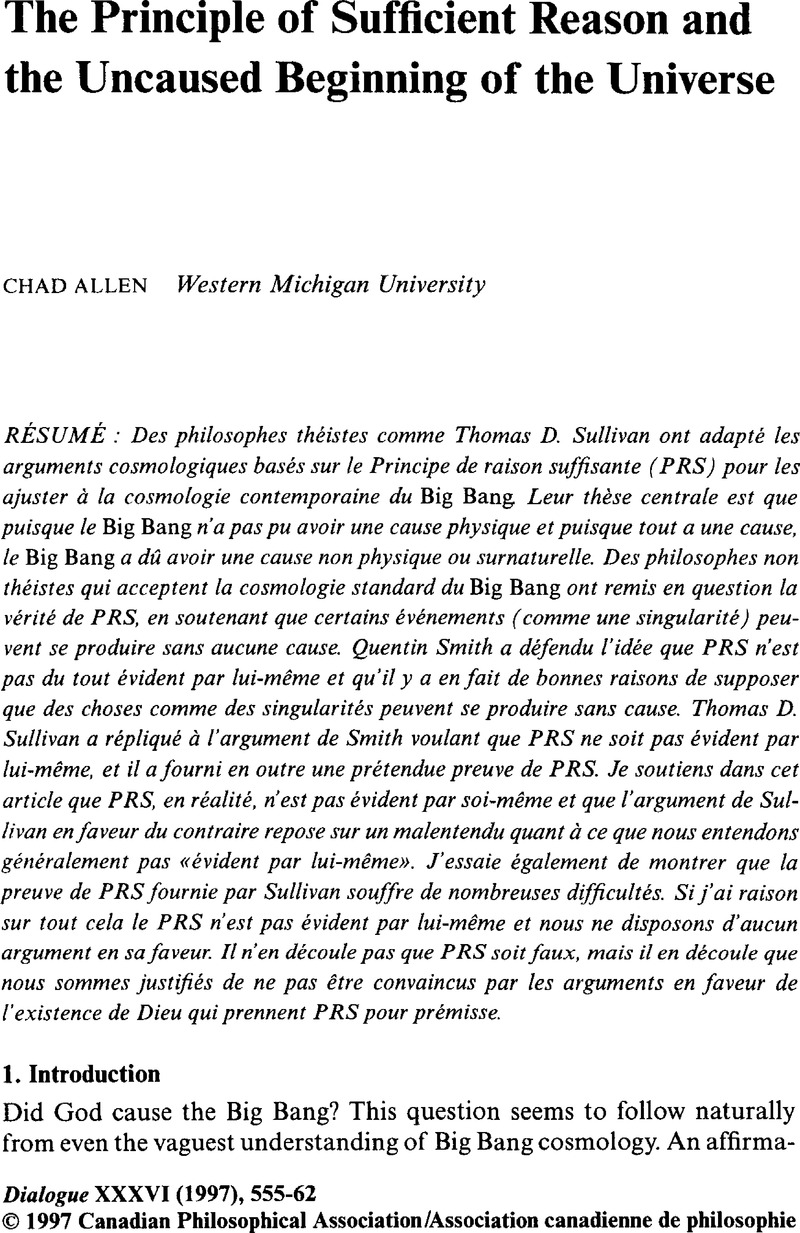Published online by Cambridge University Press: 13 April 2010

1 Craig, William L., “Theism and Big Bang Cosmology,” Australasian Journal of Philosophy, 69, 4 (1991): 492–503.CrossRefGoogle Scholar
2 Leslie, John, “Anthropic Principle, World Ensemble, Design,” American Philosophical Quarterly, 19(1982): 141–50.Google Scholar
3 Sullivan, Thomas D., “Coming to Be Without a Cause,” Philosophy, 65 (1990): 261–70.CrossRefGoogle Scholar
4 Smith, Quentin, “The Uncaused Beginning of the Universe,” in Theism, Atheism, and Big Bang Cosmology (Oxford: Clarendon Press, 1993), pp. 195–217Google Scholar. (portions originally published in Philosophy of Science, 55 [1988], pp. 39–57), and “Can Everything Come to Be Without a Cause?” Dialogue: Canadian Philosophical Review, 33 (1994): 313–23.CrossRefGoogle Scholar
5 Sullivan, Thomas D., “On the Alleged Causeless Beginning of the Universe: A Reply to Quentin Smith,” forthcoming in Dialogue: Canadian Philosophical Review.Google Scholar
6 Smith, “Can Everything Come to Be Without a Cause?” p. 313.
7 Ibid.
8 Sullivan, “On the Alleged Causeless Beginning of the Universe,” p. 4.
9 Ibid., p. 3.
10 Sullivan, “Can Everything Come to Be Without a Cause?” p. 269.
11 Note that both Smith and Sullivan agree that the modal terms in Argument A should be understood in a “broadly logical” or “metaphysical” sense, and not in a “narrowly logical” sense.
12 Smith, “Can Everything Come to Be Without a Cause?” p. 317.
13 Sullivan, “On the Alleged Causeless Beginning of the Universe,” p. 10.
14 Although Sullivan does not explicity admit to the belief that the first state of the universe is the singularity posited by Big Bang cosmology, he does believe that the universe is finitely old and has some definite beginning. I use the Big Bang singularity to refer to this starting point here for the sake of continuity with Smith's argument.
15 Ibid., p. 1.
16 This discussion was prompted by two anonymous referees fox Dialogue, to whom I am indebted for their detailed and insightful comments.